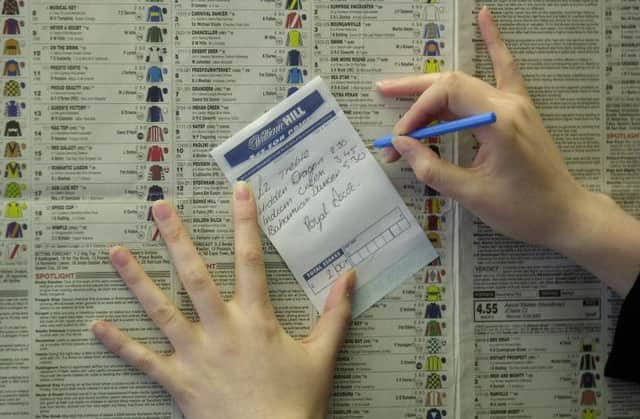Warning over ‘kneejerk’ job cuts by betting shops


Bookmaker William Hill has already announced plans to close more than 100 shops, putting 420 jobs at risk, following the surprise hike in duty on fixed-odds betting terminals (FOBTs) in last month’s Budget, and some in the industry believe further restrictions could put thousands more jobs at risk.
Reports at the weekend said the coalition government is set to give local councils power to prevent more betting shops from opening, while players could need permission from staff to spend more than £50 on the terminals, dubbed the “crack cocaine” of gambling.
Advertisement
Hide AdAdvertisement
Hide AdFOBTs allow punters to stake up to £100 every 20 seconds on electronic versions of casino games such as blackjack and roulette, but it is believed that David Cameron will stop short of curbing this limit when he unveils his plans.
According to the Association of British Bookmakers – which attacked the rise in FOBT duty to 25 per cent as a “kneejerk and ill-considered tax raid” – some 7,800 betting shops and 39,000 jobs would be at risk if the maximum stake was cut to £2 per spin, in line with slot machines.
Although the industry is likely to welcome the reprieve for the £100 stake limit, the Community trade union, which represents betting shop workers, said it feared more regulation could raise doubts over the future of members’ jobs.
Assistant general secretary John Park said: “Members have expressed their own concerns about issues around FOBTs, single staffing, problem gambling and some of the abuse at work that our members can experience on a daily basis.
“We are committed to continuing constructive dialogue and engagement with the industry, politicians and government in the best interests of our betting shop members. We want our members to have secure jobs and it’s important that any proposed regulatory changes do not trigger kneejerk job cuts and that every opportunity to make betting shops a responsible and sustainable part of UK high streets is taken.”
William Hill, which has more than 2,400 betting shops, had warned that George Osborne’s increase in FOBT tax would cost it about £22 million a year. The planned closure of 109 branches will lead to extra one-off costs of up to £24m.
Shares in the firm, headed by Scottish Professional Football League chairman Ralph Topping, have fallen sharply since the hike in duty was announced, as have those in rival Ladbrokes, which is due to deliver a trading update on Wednesday.
During a Holyrood debate last week, SNP MSP Stuart McMillan described FOBTs as “cash cows” for betting shops and said he was “fundamentally against bookmakers targeting areas of deprivation and high unemployment”.
Advertisement
Hide AdAdvertisement
Hide AdHe suggested that the higher than average jobless rate in Inverclyde was one factor that could explain why the local authority area, with a population of about 82,000, had 70 terminals spread across 19 shops, whereas more affluent Aberdeenshire, home to three times as many people, had 78 machines in 21 branches.
Justice secretary Kenny MacAskill said Scotland should be able to do more to help compulsive gamblers, “but we simply do not have the powers we need to do so at present, as the regulation of gambling is reserved to Westminster”.
He added: “Our view is that the UK government has not done enough to address problem gambling.”